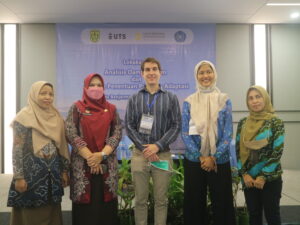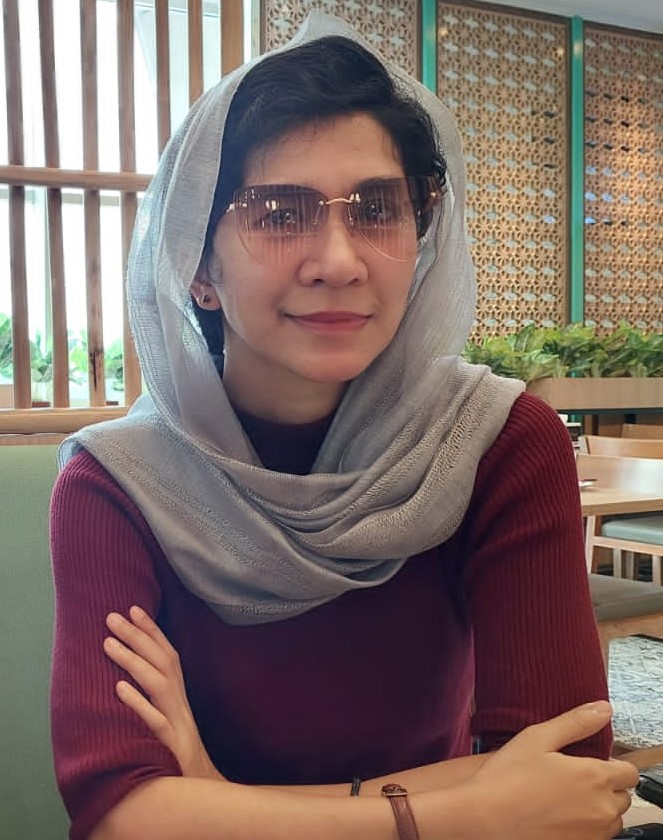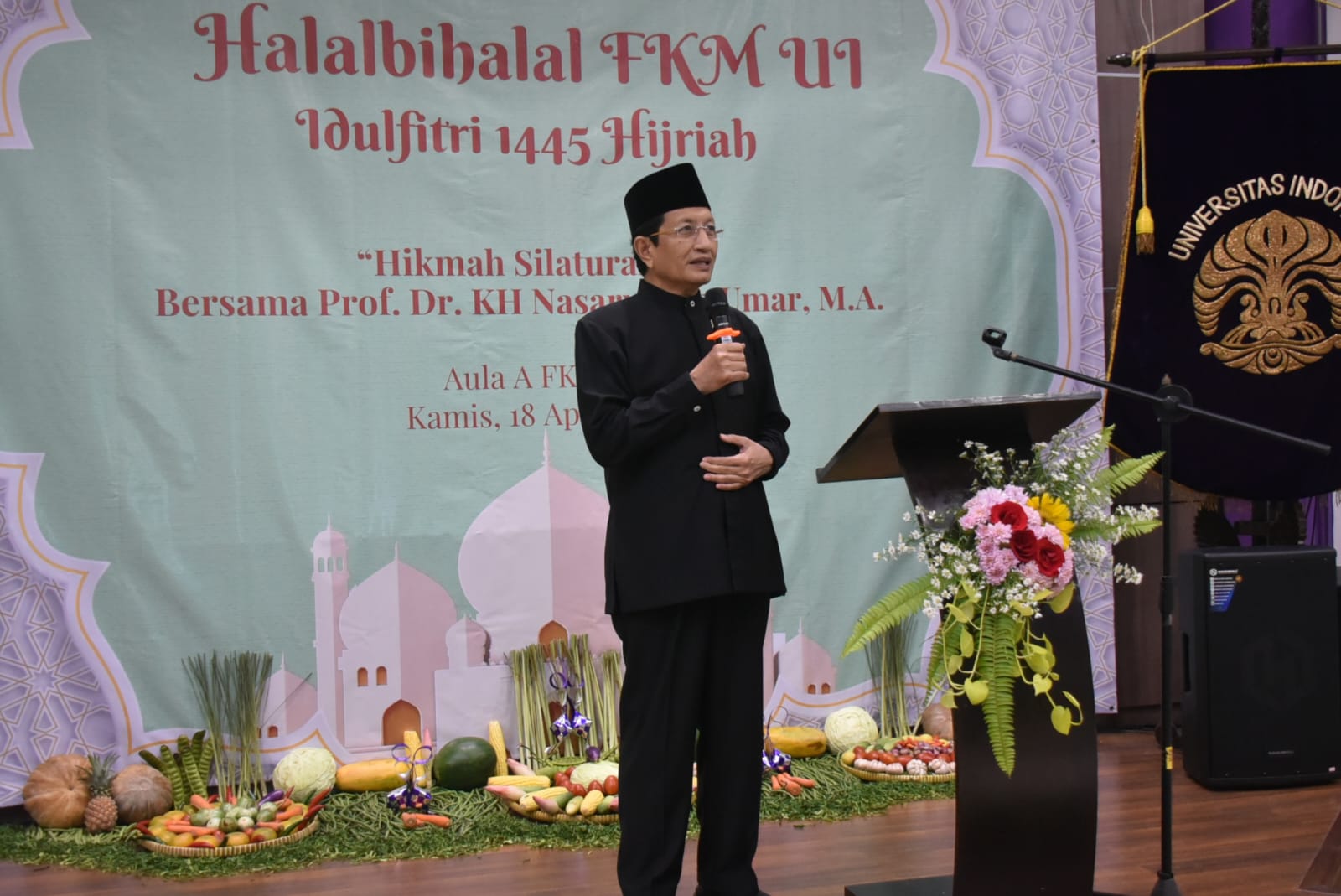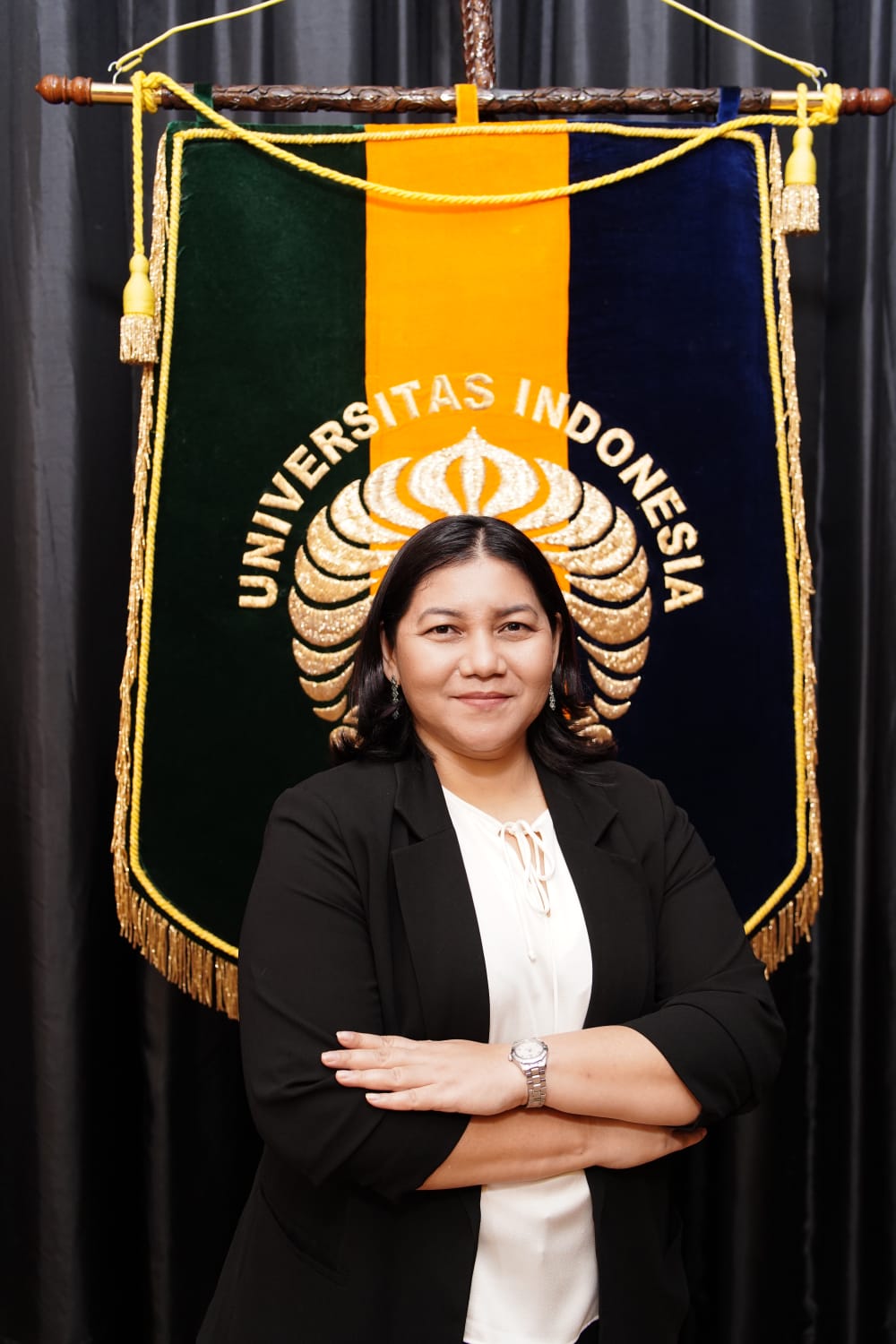
A team from Universitas Indonesia (UI), the Institute for Sustainable Futures, University of Technology Sydney (UTS-ISF), and Universitas Muhammadiyah Banjarmasin (UMB) organized a workshop on Climate Impact Analysis and Adaptation Prioritization Methods in Banjarmasin. “This workshop raised the issue of climate change and its impact on sanitation. By 2050, it is estimated that more than 300 million people worldwide will be exposed to recurrent flooding as a result of sea level rise due to climate change. These floods will impact access to sanitation services. This workshop aims to implement the framework that has been developed by the service team for risk identification due to sea level rise as well as effective adaptation plans for the sanitation sector,” said Dr. Cindy, Head of the FEng UI Environmental Engineering Study Program.
This activity is a form of community service from researchers from the UI Faculty of Engineering (FEng UI) led by Dr. Cindy Rianti Priadi, S.T., M.Sc., and UTS-ISF under the leadership of Dr. Jeremy Kohlitz (UTS-ISF), as well as the UMB Team. The event committee invited decision-makers in the local government of Banjarmasin, such as from the Regional Apparatus Organization (OPD)-the PUPR Agency, the Environmental Agency, the local PAL Perumda.
Dr. Jeremy Kohlitz spoke on the topic of “Climate Change, Sea Level Rise, and Sanitation”. “Some examples of the impact of sea level rise on sanitation are the entry of sea water/flood water into septic tanks, toilets that cannot be flushed, and the entry of flood debris into septic tanks. The challenge for communities is how to build resilience in the face of climate change and sanitation. Resilience is defined as the capacity of a system to continue functioning despite exposure to climate hazards,” says Kohlitz.
“While from the community side, adaptations that can be done in the face of flooding, namely changes in behavior, physical / environmental changes and migration,” said a member of the community service team from UMB, Fitri Wulandari, S.T., M.Sc., adding.

On the first day of the workshop (July 26-28, 2022) at the Rattan Inn Hotel, Banjarmasin, a Focus Group Discussion (FGD) was conducted with participants identifying the sanitation service chain in Banjarmasin City using a shit flow diagram (SFD). Participants then discussed the unsafe sanitation service chain in Banjarmasin and identified the components that need attention. Participants then mapped hotspots of high sanitation risk zones in Banjarmasin.
The second day of FGD opened with a presentation on the impact of climate change on sanitation systems. Dr. Cindy led participants to analyze the status of flood-affected sanitation systems, the impact of flood-affected sanitation systems on health, comfort, and financial loss, and the causes and root causes of flood-affected sanitation systems.
The team then presented material related to several sanitation technology designs and how to manage them so that sanitation technology can withstand hazards, especially flood hazards. Participants were then asked to evaluate the level of resilience of sanitation technologies already implemented in Banjarmasin to climate change.
Dr. Jeremy also presented 52 adaptation options for dealing with climate change. Participants were then asked to select several adaptation options that are effective and suitable for the conditions of Banjarmasin City.
From this narrowed down number of adaptation options, on the third day, Dr. Cindy led participants to identify concrete action plans to achieve the determined adaptation options.
Assistant Mayor of Banjarmasin City, Ir. Doyo Pudjadi highly appreciates what UI and its partners are doing. “Hopefully, with this activity, regional apparatus in Banjarmasin City can understand the dangers of climate on sanitation. Participants are also expected to seriously implement the action plans that have been made at this workshop so that our city’s sanitation will be better in the future.”
Met on a separate occasion, the Dean of FEng UI, Prof. Dr. Heri Hermansyah, ST., M.Eng., IPU said, “The FEng UI Environmental Engineering Study Program has established partnerships with partner universities from both within and outside the country that support the Indonesian Government’s agenda to improve access to drinking water, sanitation, and hygiene throughout the country. These partnerships include research on climate change resilient urban sanitation and drinking water quality. Both studies have produced clear evidence for advocacy and actionable recommendations, which are greatly appreciated by the Government of Indonesia. Hopefully, the adaptation options generated from this workshop can be immediately implemented in Banjarmasin city and become a model for other cities in Indonesia.”



